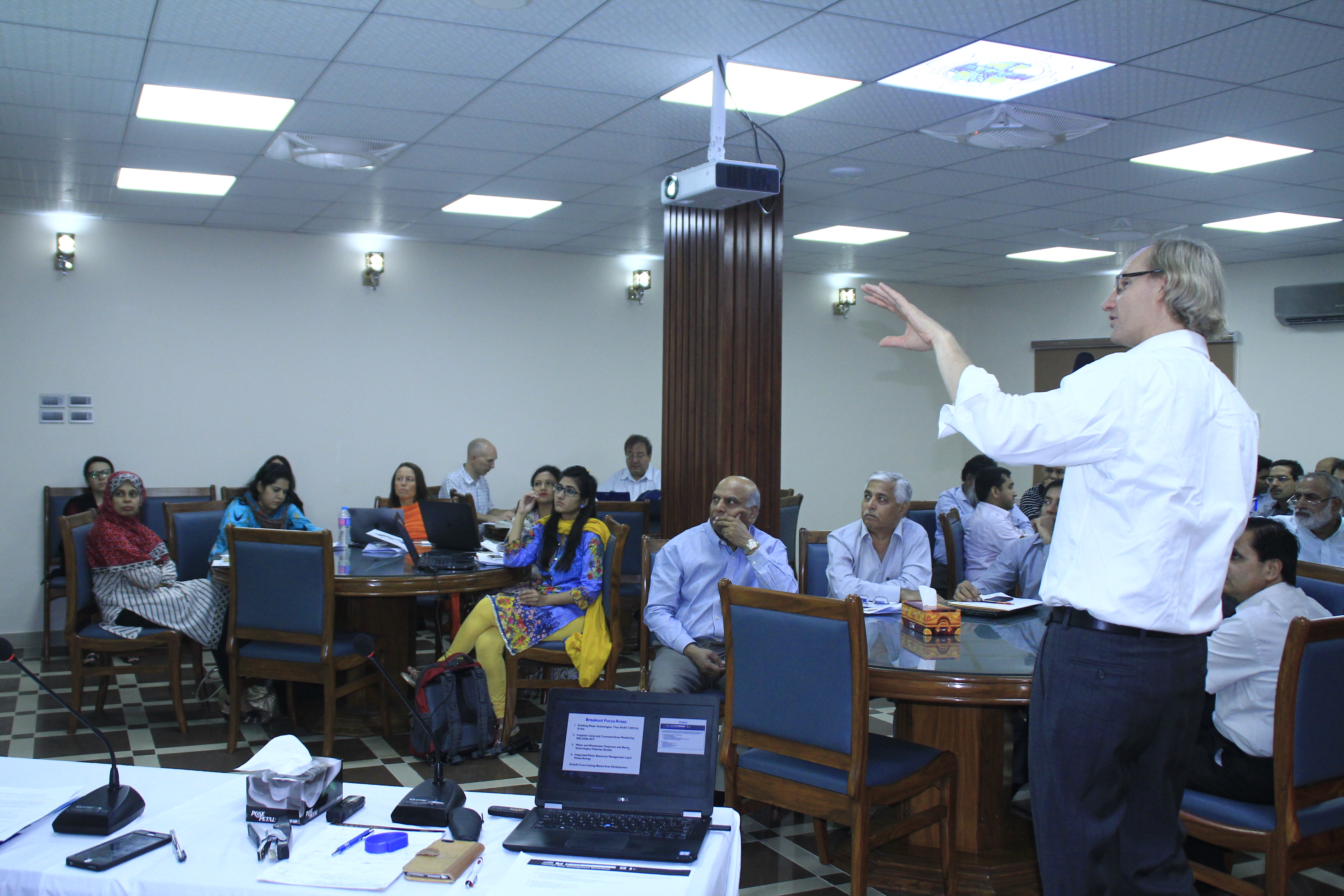
In May, team members from the U.S. travelled to Mehran University of Engineering and Technology in Pakistan for a series of workshops. The theme for the mission was “Innovation for Impact.” Building on this theme, the team worked to more deeply engage MUET faculty, students, and stakeholders in a collaborative process. Workshop instructor teams included U faculty members along with selected MUET faculty as co-instructors. The mission helped MUET faculty apply strategies, data-sets, and tools to assess water system climate vulnerabilities and develop adaptation strategies. It also helped MUET faculty brainstorm innovations for advancing technological, financial, and social solutions to supplying clean water. The group worked to build industry-academia research partnerships, as well as developing teaching materials using the flipped classroom approach.

The Climate Vulnerability Assessment and Adaptation of Water System Workshop assessed climate vulnerabilities of the Indus River System, clean water access, sanitation in Pakistan, and the Hyderabad water utility. The instructors presented a variety of approaches and tools to help initiate new climate adaptation projects working in collaboration with relevant stakeholders. Workshop speaker Steve Burian addressed how wide-spread this issue is, saying “Assessing vulnerabilities of water systems is not exclusively a Pakistan problem, it is a $20 trillion dollar global problem.” Other speakers also stressed the urgent need to increase the amount and quality of data for climate vulnerability assessment and adaption and how this data can be used to create better policy briefs.

In the Industry-Academia Water Technologies Research Forum, industry, academia, government, civil society, utility professionals, and others came together to share technological, financial, and social challenges and solutions for clean water system sustainability. The group also worked to identify approaches for forming sustainable partnerships. Workshop speaker Mr. Muhammad Waseem Vohra, representing the Federation of Pakistan Chambers of Commerce and Industry, said “The key for successful industry-academia research partnerships is to focus on the most urgent challenges facing Pakistan.” This workshop also led into an Industry-Academia Water Technologies Research Co-Creation Workshop where the group worked to produce outlines of concept notes to be submitted to the USPCAS-W Industry-Academia Research Partnership Seed Grant opportunity.

The team also hosted a Flipped Classroom Workshop to introduce strategies and techniques to develop lessons and deliver instruction using the flipped classroom approach. The workshop elements helped attendees to: explain the advantages and disadvantages of the flipped classroom; identify when, how, and what to implement using flipped classroom approach; use bottom-up design of instruction for flipped classroom lessons; apply Camtasia software to produce lecture materials; use student learning assessment techniques for flipped content; and engage students in learning exercises in the flipped classroom. During the workshop, faculty members took existing lessons and worked to transform them into flipped lessons. Professor Jeff Ullman taught the workshop participants about the basic principles underlying the flipped classroom approach. He accentuated that adopting a new style of teaching can be difficult, but an increased emphasis on active learning can promote higher order thinking skills. After the workshop, MUET faculty member Ghulam Hussain Dars said “I love this technique and I am going to apply it to 2 or 3 lectures in my class next year.”

MUET also hosted the Young Researchers National Conference on Water and Environment. This two day event allowed young researchers to present at a conference, take suggestions from fellow researchers and scholars, as well as test run and get advice on how to refine their papers to approach international conferences. At the conference, Dr. Mercedes Ward urged the attendees to think holistically about the relationship between communities and water in order to ensure that technological solutions are well-suited to the local cultural context and do not create unanticipated negative consequences. She highlighted the role of academia in contributing to the SDG’s, saying that “through interdisciplinary and cross-sectoral networks, collaborative innovation, and community-engaged research, academics can position themselves to help the broader national and global community to see water problems with new eyes: to see differently in order to do differently.”
